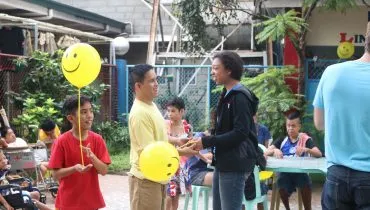The Philippines is the third largest English speaking country in the world. It has a rich history combining Asian, European, and American influences. In the 1900s, Americans brought their culture and the English language to the islands. Today, it is a dynamic newly-industrialized country, with a population of over a hundred million. Travellers labeled the country as the “Golden Treasure of the South-East Asia” because this is where they discover breathtaking landscapes and meet wonderful people.
It is a tropical country and an archipelago with 3 major islands: Luzon, Visayas, and Mindanao composed of more than 7,400 islands. Temperature rarely dips below 20C. Filipinos celebrate traditional festivities known as barrio fiestas (district festivals) to commemorate the feast days of patron saints. Locals greet each other with a smile, which means “hello”.
Youth in the Philippines attend dance schools, participate in sports like basketball, tennis, badminton, volleyball and biking and belong to youth groups at churches and community organizations. Joining in and being part of the group is expected.
The team at AFS Philippines are looking forward to discussing the programmes with you and can be called or Whatsapp’d on +63 917 654 7282 between 6am and 10am.
Alternatively enquire now and we’ll call you back.




